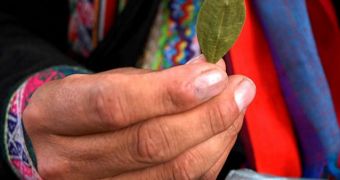A team of investigators from the Scripps Research Institute (SRI) and other organizations managed to create an immunity-like effect against cocaine in mice, rising hopes of developing new treatments and cures against human additions. The substance could be used as a guarantee that former addicts stay off the stuff.
The approach that the research group selected was one of the most ingenious to date. The researchers gave the unsuspecting lab rodents a vaccine that incorporated particles mimicking the effects of cocaine in combination with the common cold virus.
This study effort was conducted by a joint team of experts, featuring members for a large number of research groups. Details of the research effort appear in the latest online issue of the esteemed scientific journal Molecular Therapy.
With the new method, the experts say, addicts may soon become able to break the spell that the drug has over their bodies in no time. Nicotine, heroin, and methamphetamine additions could be next in line for treatments using this approach.
“Our very dramatic data shows that we can protect mice against the effects of cocaine, and we think this approach could be very promising in fighting addiction in humans,” explains Ronald G. Crystal, MD, the lead investigator on the research.
The expert holds an appointment as the chairman and professor of genetic medicine at the Weill Cornell Medical College, PsychCentral reports.
“The vaccine suppresses the stimulant effects of the drug. Unlike other types of treatment, a vaccine such as this one does not interfere with the neurological targets of the drug, but instead blocks cocaine from ever reaching the brain in the first place,” adds expert Kim Janda, PhD.
The Scripps Research Institute professor is a co-author of the new research paper and also a pioneer in the field of developing vaccines against addictive drugs, cocaine included.
According to the research team, the effects of the vaccine lasted for no less than 13 weeks, which is the longest period of time ever recorded in such a study. Other similar remedies last for only a few days.
“This vaccine would be most applicable for addicts who are interested in getting off the drug,” explains Janda, who is the Eli R. Callaway Jr. Chair in Chemistry.
The expert is also a member of the Skaggs Institute for Chemical Biology at Scripps. According to official statistics from the National Institute on Drug Abuse (NIDA), more than 5.3 million Americans abused cocaine in 2008.

 14 DAY TRIAL //
14 DAY TRIAL //